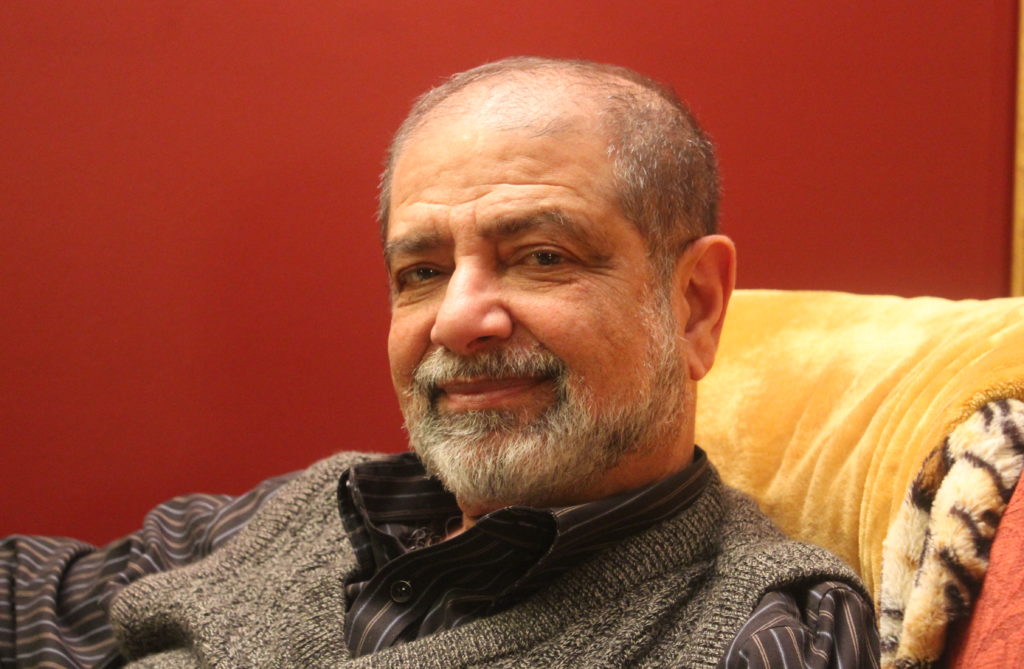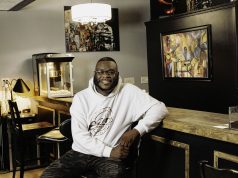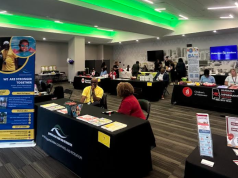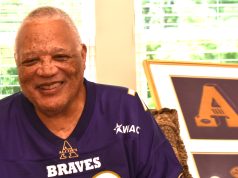By Barnett Wright
The Birmingham Times

The Birmingham Public Library’s 14th Annual Martin Luther King Jr. Memorial Lecture on Sunday featured four young people from Birmingham’s Islamic community who shared their experiences and answered questions about their lives and their faith,
Ali El-husary, Mahad Amjad, Rowan El-Qishawi, who are students at the University of Alabama at Birmingham, and Safa Barra, a 16-year-old who attends Hoover High School spent about an hour answering questions from an audience made up of mostly young students.
The discussion was held in the Arrington Auditorium, 4th Floor of the Linn-Henley Research Building.
El-Qishawi, a freshman, who is studying biomedical and diagnostic sciences, said her “master plan is to make the world a better place but I want people to understand I’m a Muslim, I like research, I like hobbies but we are your scientists, your entrepreneurs, your engineers. We are just like you . . . I am human as you are.”
El-Qishawi said wearing the hijab scarf has led to some interesting encounters.
She initially wore “the scarf” as an experiment – “I was very aware of what was going on in the world” – and wore it to a library, one of the safest places she could find, she said.
“The first thing that happened was, to my surprise, a little child walked out the elevator and he said ‘look daddy, there is one of those terrorists you were talking about.’ I don’t think I’ve ever been as shocked as I was at the moment,” El-Qishawi said. “It didn’t take two seconds for me to literally run back to the car and I sat there for like forever and I cried my eyes out.”
El-Qishawi said she considered not wearing the scarf again but realized she was wearing it as “submission to my Lord, I want to be pious.” El-Qishawi said she does not wear it for anyone else but “for me . . . I am going to wear this scarf to show them I am just as human as they are. I want you to know that I am a Muslim and I take a lot of pride in that.”
The panel talked about the misconceptions and stereotypes of Muslims as terrorists and women in Islam being oppressed.
Barra said, “I’ve never felt like I’ve missed out on opportunities because of who I am. My mom is one of the ladies who constantly pushes me out to go do new things and go to meet new people and my father is a hardworking social person so he is always pushing me out to explore and meet new people . . . I’m a typical high school kid who goes out with her friends when I have a chance. . . . I spend a lot of time trying to help and give back to my community. We are the typical teenage kids that we don’t always look like you but we have the same interests.”
Ashfaq Taufique, president of the Birmingham Islamic Society, said countries with Muslim majorities “have elected women as heads of state 21 times. Before we say women in Muslim lands or countries are subjected . . . there is a history that the United States still has to follow,” he said.
Taufique and Jim Baggett, head of BPL’s Archives & Manuscripts Department, said they hope the MLK Lecture sparks a positive conversation on Islam in Alabama.
“One of the dangerous routes we have taken in this country and in this world, for that matter, is lack of dialogue, lack of conversation,” Taufique said. “The only way to narrow this gap that is dividing this country in a very philosophic way is to engage in conversation.”
Baggett said the annual program has looked at civil rights as well as human rights. “That led us this year to look at an issue important in this area and around the world – Islamophobia,” he said.
He referred to Dr. King’s famous quote, “Take the first step in faith. You don’t have to see the whole staircase, just take the first step.”
“The first step for people who want to understand each other is to talk and ask questions,” Baggett said.





